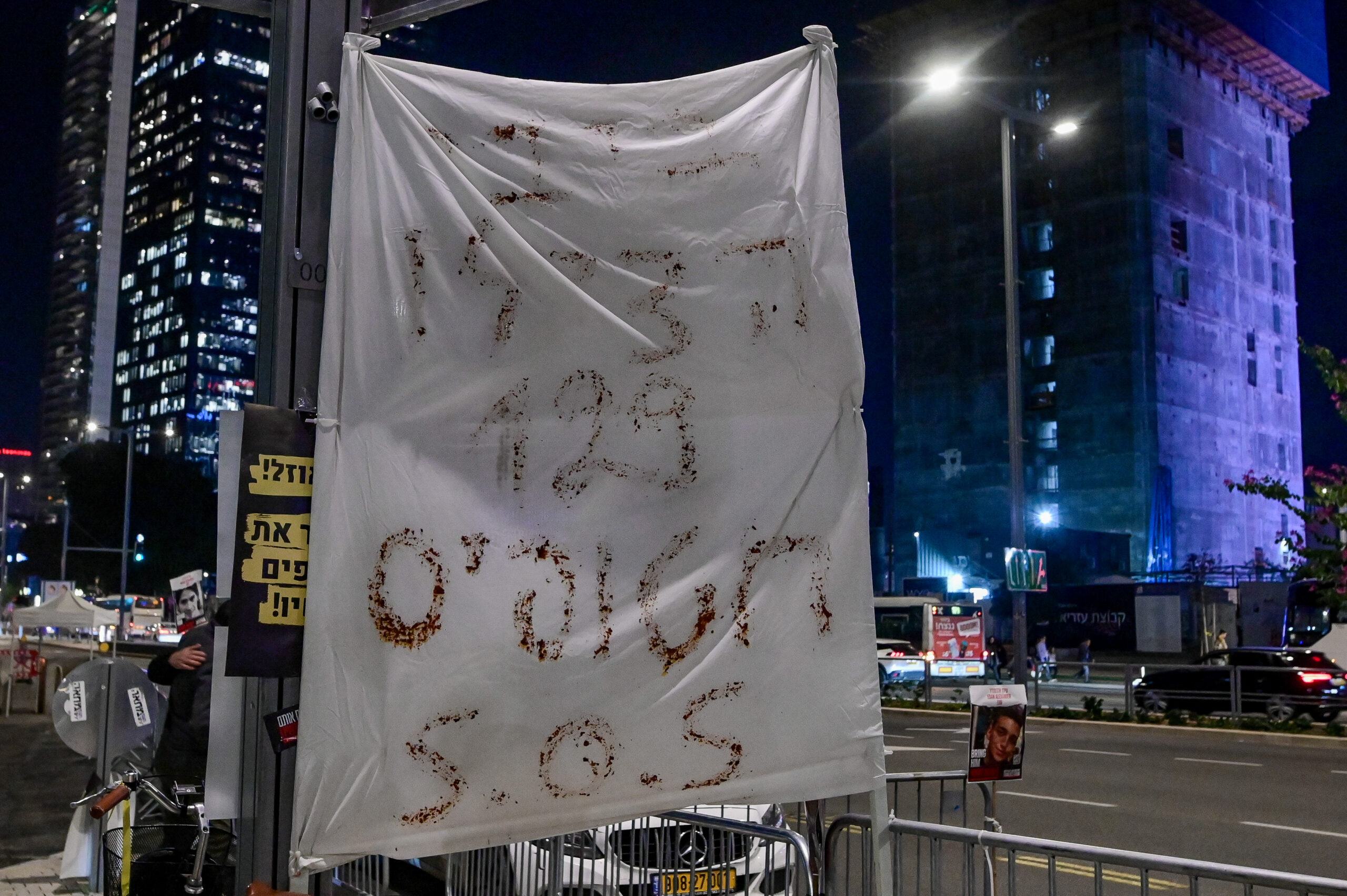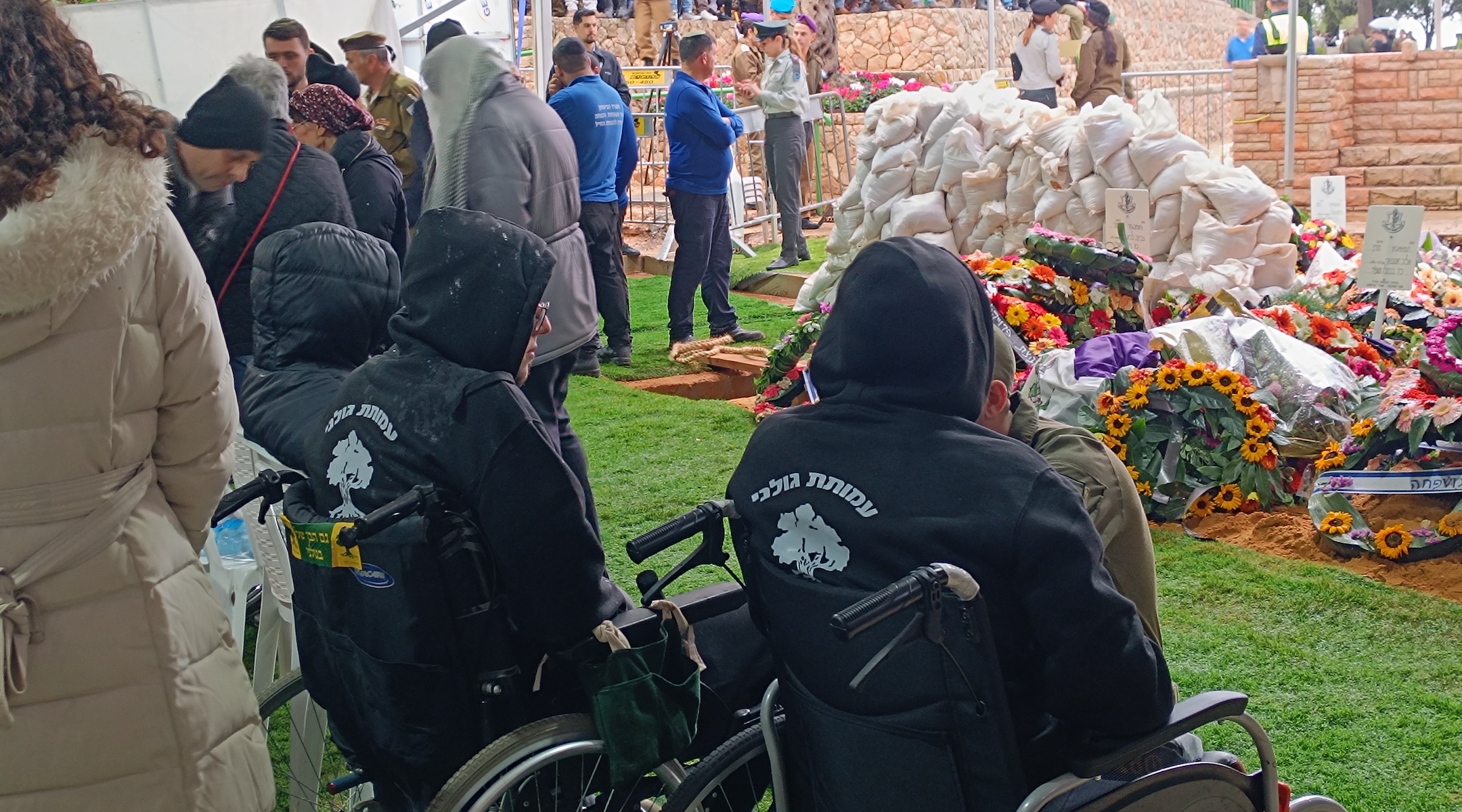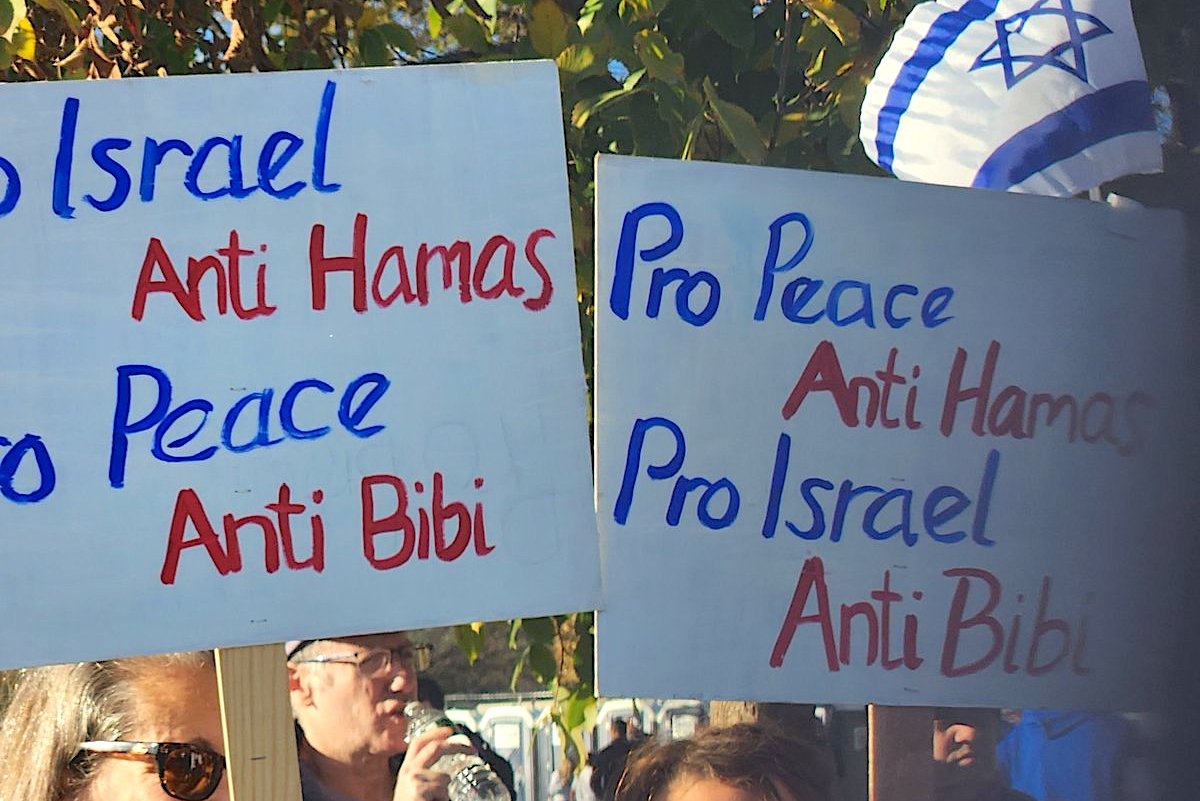(JTA) — First thing every morning, I open Israeli news sites, dreading what I will see: more soldiers killed in action, more hostages confirmed dead, more Palestinian civilians killed in Gaza. More drones and missiles flying at Israel from Gaza, Lebanon, and Yemen. More bereaved and terrified children and families. A darker and dimmer future for Israel and the entire region.
After Hamas’s atrocities of Oct. 7, it was clear that some kind of military response was both necessary and justified. No country could be expected to do otherwise in the face of a terror attack that including murdering, raping, and kidnapping hundreds of civilians — all of which are war crimes. Like so many others, I was horrified by those who argued that such depraved brutality must be excused and rationalized in the context of occupation and the siege of Gaza.
But as Israel’s massive bombardment and shelling of Gaza continues through a third month, with its devastating toll on Palestinian civilians, it’s time for those of us who consider ourselves supporters of Israel, who have loved ones in Israel, and who are committed to Israel’s long-term security to call for a negotiated end to the war.
Within the pro-Israel community, the very word “ceasefire” has become toxic because it has been seized upon by some who do not have Israel’s best interests at heart. Already on Oct. 7 and soon after, and even before Israel’s retaliatory attacks, there were some who launched protests of Israel, and who even celebrated Hamas’s cruel attacks. In that context, calls for ceasefire have amounted to a one-sided call for Israeli pacifism or surrender.
And while many calls for ceasefire are driven by a genuine desire to end the deaths of civilians, and some have included a call to return hostages, too many have been accompanied by false charges of genocide, a claim under international law that carries a high burden of proof of intent, or by justifying or even denying Hamas’s murders, rapes and kidnapping. Some of these protests have included antisemitic language, including demands that Israeli Jews leave Israel, denials of Jewish connection to the land, and calls to “globalize the intifada,” which many Jews understandably take to mean terrorist attacks on buses and other civilian targets, including Jewish institutions outside of Israel. Protesters have taken out anger at Israel on Jewish institutions, including through vandalism and even shootings directed at synagogues.
But I want to make a pro-Israel case for a negotiated end to the war. In Israel, some of those most affected by Hamas’s atrocities have been the loudest voices calling for a return to negotiations. This past Saturday night, families of the remaining hostages, along with Israelis who have been freed from captivity and thousands of their supporters, protested at the Kiryah, IDF headquarters in Tel Aviv. Their demand was clear: As Noam Peri, whose father Haim Peri, remains in captivity, told the crowd, “We only receive dead bodies. We want you to stop the fight and start negotiations.”
I was in Israel during the initial ceasefire, which resulted in the return of more than 100 hostages. One night, I found myself in Hostage Square in Tel Aviv at the very moment when that evening’s group of redeemed hostages landed in Israel. I felt both relief and joy at seeing the faces of women and children flash on the giant screen, with the words “I have returned home,” as well as the pain of the families whose loved ones remained in Gaza.
That night in Tel Aviv, I watched multiple members of one family holding signs with the face of a young man. Days later, he was confirmed murdered in captivity. And last week, three escaped hostages were mistakenly gunned down by Israeli soldiers in Gaza. As the families and those who have returned from captivity continue to emphasize, the remaining hostages do not have much time left.
Pidyon Shvuyim, the redemption of captives, is one of the most important mitzvahs in Judaism, and one that, unfortunately, has had to be practiced over and over throughout Jewish history. While there is some concern over redeeming captives at too great a price, key figures such as Rabbi Ovadia Yosef, the longtime Sephardic chief rabbi of Israel, have argued that immediate danger to the lives of hostages overrules the possibility of future danger from the release of prisoners.

People hold a sign replicating the message painted by three hostages who were killed by Israeli troops, during a protest calling for the government to find a solution to have the hostages released, outside the Military Defense Headquarters in Tel Aviv, Dec. 19, 2023. (Avshalom Sassoni/Flash90)
Those of us who care about the long-term flourishing of Israel must ask whether those conducting this war have a strategy and whether the price of victory — whatever “victory” may mean — will be too high. As military analyst Amos Harel wrote this week, “Like in Lebanon in 1982, this consensus [in support of the war] rests on two conditions that gradually waned over time: a clear purpose for the war and the understanding that victory is attainable. The risk in Gaza will grow, too, when doubts begin to emerge about whether those conditions can be fulfilled.” Just as the United States learned in Afghanistan, a war might be justified, but it is very difficult to conduct justly, or wisely, especially when driven by strong emotions of shame, humiliation, rage, and revenge. It can end with extremists still in power — and even strengthened.
As the Biden administration has made clear, a negotiated ceasefire, would include the return of hostages an end to Israeli attacks in Gaza and to missile attacks on Israel, and ultimately would lead to an international plan for a new government in Gaza. This does not necessarily preclude future targeted raids aimed at specific military capabilities if necessary. But it would bring to an end the current war, which has already killed, injured and displaced far too many Israelis and Palestinians.
Perhaps this war can be “won,” in the sense that Hamas’s top leaders may eventually be killed, but can the IDF really root out every last fighter and every last rifle and rocket in every last tunnel? And if so, at what cost?
Would it be a victory to bring about the deaths of tens of thousands more Palestinian civilians, whether from bombs, disease, starvation or exposure? To sacrifice even more Israeli soldiers on what Israeli poet Natan Alterman called “the silver platter” for a war that is increasingly unlikely to bring greater security to Israel?

Wounded Israeli soldiers were among the thousands who attended the funeral of Tomer Grinberg, an Israeli officer killed the previous day, at the Mt. Herzl cemetery in Jerusalem, Dec. 13, 2023. (Eliyahu Freedman)
Would it be a victory to create a new generation of young Palestinians who believe they have nothing to lose, and who become the next generation of Hamas? Would it be a victory to spark a regional war that could inflame the entire world?
Would it be a victory to sacrifice Israel’s relations with the United States, which has increasingly made clear its position that Israel must end the intense phase of the war soon? Would it be a victory to turn Israel into a pariah state?
Those who call themselves pro-Israel need to get serious about which Israel they support. Is it this extremist government, driven by the settler agenda, with a bleak future, forever living by the sword? Or is it a democratic Israel, living within internationally-recognized borders, as a full member of the international community? The long-term security of Israel – ”victory” in its truest and deepest sense – will come about only through an Israel with stable borders alongside a Palestinian state and with normalized relations with neighboring Arab and Muslim countries.
In a legal opinion supporting the 1982 peace treaty with Egypt, Rabbi Chaim David HaLevy, then the Chief Sephardic Rabbi of Tel Aviv, riffed on the verse, “May God grant strength to God’s people; may God bless God’s people with peace,” by saying, “Just as for a generation, we carried out wars with strength and might, God will bless us now that we will also know how to make peace. Because it’s very possible that it’s easier to fight than to achieve true peace.”
Given the polarization of the moment, and our deep wounds, it may be hard for those of us who care about Israel and Israelis, and who are committed to the long-term flourishing of the state, to call for a negotiated end to the war. But doing so might well be the most pro-Israel, and the most Jewish, position that one can take.
JTA has documented Jewish history in real-time for over a century. Keep our journalism strong by joining us in supporting independent, award-winning reporting.







